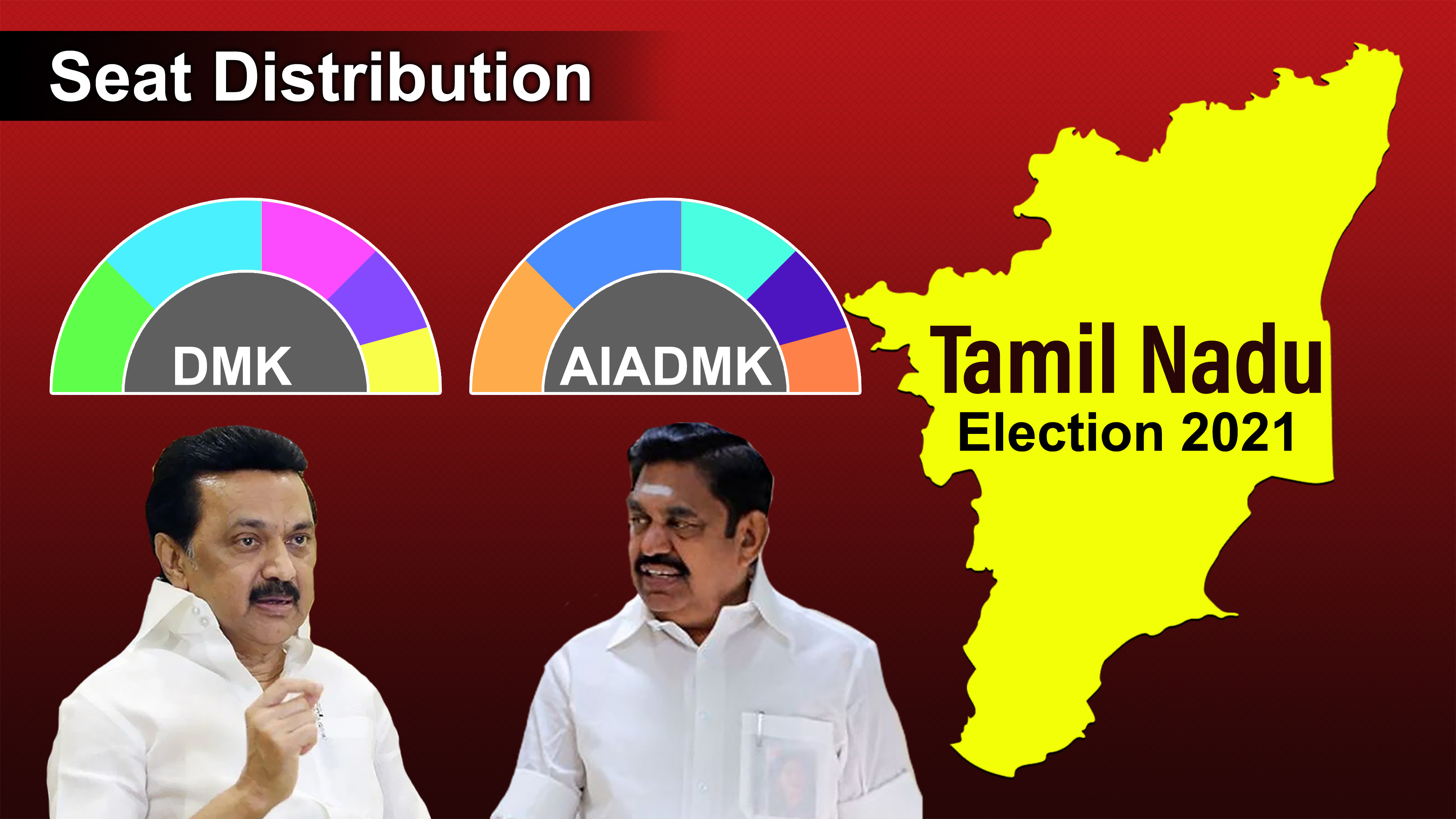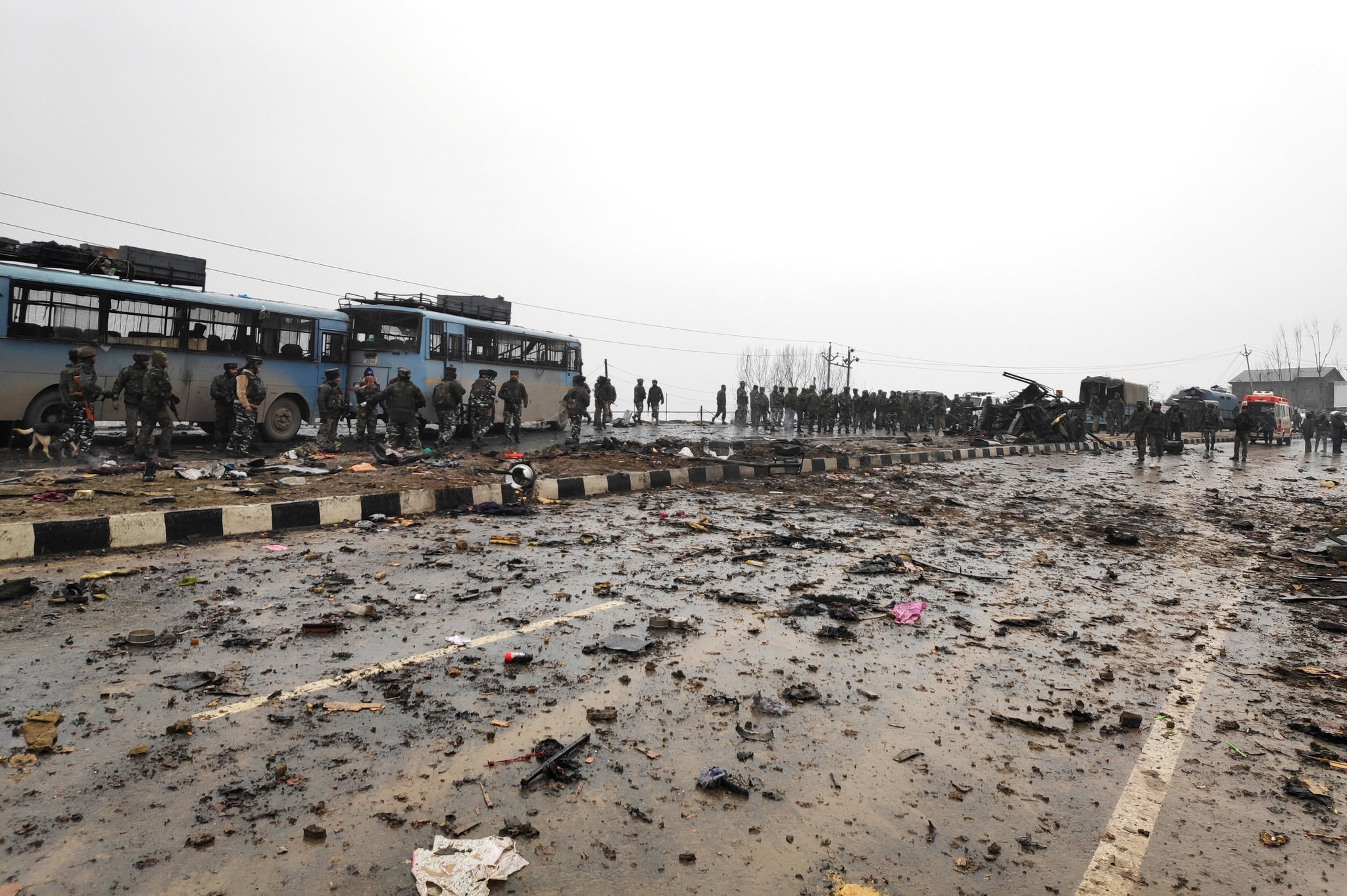


With Lok Sabha election dates expected to be announced soon, political parties in Tamil Nadu are in a race to secure seat-sharing deals. The ruling DMK is currently working on an alliance with the Congress, who won eight out of nine seats in the state in 2019. Smaller allies, such as the PMK and VCK, are still in talks for seat allocations. Meanwhile, the AIADMK and BJP are also trying to secure an alliance with the PMK to take on the DMK-Congress alliance.
Political Alliances Shake Up Tamil Nadu Ahead of Lok Sabha Elections
As the countdown to the Lok Sabha elections intensifies, political parties in Tamil Nadu are scrambling to form alliances in order to maximize their chances of success. The ruling Dravida Munnetra Kazhagam (DMK) has already begun negotiations with the Indian National Congress, who had a strong showing in the state in the 2019 elections. Meanwhile, the All India Anna Dravida Munnetra Kazhagam (AIADMK) and Bharatiya Janata Party (BJP) are also courting the Pattali Makkal Katchi (PMK), a powerful regional party with a significant following among the Vanniyar community.
Background
The PMK is a political party based in Tamil Nadu that represents the interests of the Vanniyar community, a dominant caste group in the state. The party was founded in 1989 by S. Ramadoss, a physician and social activist, and has consistently played a crucial role in Tamil Nadu politics. The PMK's main demands include reservations for Vanniyars in education and government employment, as well as greater autonomy for Tamil Nadu.
Current Alliances
The current political landscape in Tamil Nadu is highly fluid, with several possible alliances being discussed. The DMK-Congress alliance is seen as the strongest contender, with both parties hoping to build on the success they achieved in the 2019 Assembly elections. The AIADMK-BJP alliance is also a formidable force, and the addition of the PMK could bolster their chances significantly.
Impact of PMK
The PMK's support could prove to be decisive in the Lok Sabha elections. The party has a strong base in northern Tamil Nadu, where it commands a significant percentage of the Vanniyar vote. If the PMK aligns with the DMK-Congress coalition, it could help them consolidate support in key constituencies, while an alliance with the AIADMK-BJP would give the latter a boost in its bid to regain power.
Top 5 FAQs
1. What is the significance of the Vanniyar community in Tamil Nadu politics?
The Vanniyar community is a dominant caste group in Tamil Nadu, and their votes are crucial for electoral success. The PMK, which represents their interests, has consistently played a kingmaker role in state politics.
2. Why is the PMK considering alliances with both the DMK-Congress and AIADMK-BJP coalitions?
The PMK is seeking to maximize its bargaining power and secure the best possible deal for its constituents. The party's support could be decisive in the elections, and both major alliances are keen to secure its support.
3. How could the PMK's alliance with the DMK-Congress coalition affect the elections?
If the PMK aligns with the DMK-Congress, it could consolidate Vanniyar support in their favor, giving them an edge in key constituencies.
4. What are the implications of an AIADMK-BJP-PMK alliance?
An AIADMK-BJP-PMK alliance would create a formidable force in Tamil Nadu, as it would combine the strength of the AIADMK's traditional voter base, the BJP's national reach, and the PMK's support among Vanniyars.
5. What is the historical significance of the PMK in Tamil Nadu politics?
The PMK has played a pivotal role in Tamil Nadu politics since its inception in 1989. The party has successfully mobilized Vanniyar voters and has been a key player in shaping the political landscape of the state.

The Indian National Congress (INC) has announced its plans to launch a month-and-a-half-long campaign in Jammu and Kashmir on April 22. The purpose of the campaign is to demand the restoration of statehood and to further the “Save the Constitution” movement. With the recent appointment of Syed Naseer Hussain as the new J&K in-charge, the party hopes to regain its lost support in the Union Territory. This campaign comes at a crucial time, as former supporters of the Congress leader Ghulam Nabi Azad have recently dissolved their party, raising questions about their political future. The Congress hopes to use this opportunity to highlight the BJP's failures in empowering elected governments and its betrayal over statehood.

Thousands of citizens in Pune are rallying together through an online petition to demand the protection of their city's hills and hill slopes from any construction. The petition is addressed to the former Pune Municipal Commissioner and Chairman of the state-appointed Committee on Bio-Diversity Park and Hill Top Hill Slopes. The citizens are concerned that the committee's review may result in allowing construction on the hills, while strict measures have already been mandated by the government to prevent it. The citizens stress the importance of preserving these natural areas for the city's ecological balance and urge the government to uphold its promise to future generations.

After the devastating terror attack in Pahalgam, Jammu and Kashmir, India has suspended the 1960 Indus Waters Treaty with Pakistan. This decision was made during a key meeting chaired by Union Home Minister Amit Shah, with discussions on potential actions being taken against Pakistan. As tensions between the two countries continue to escalate, Indian leaders have condemned Pakistan for their involvement in the attack and have vowed to take strong measures in response.

The Indian Army made its first major move since the Pahalgam terror attack on April 22, as they killed top Lashkar-e-Taiba (LeT) commander Altaf Lalli in an encounter in Jammu and Kashmir's Bandipora district. The security forces are on the hunt for the terrorists responsible for the brutal killing of 26 civilians and have launched a massive anti-terror operation. In other developments, Indian Army Chief General Upendra Dwivedi visited Srinagar for a security review meeting and the authorities demolished the houses of two suspected terrorists involved in the Pahalgam attack.

In a hearing at the Supreme Court, the bench rebuked Congress leader Rahul Gandhi for his "irresponsible" comments about freedom fighter Vinayak Damodar Savarkar. The judges highlighted the need to show respect for India's freedom fighters and questioned whether Gandhi was aware of his grandmother and Mahatma Gandhi praising Savarkar. The court also stayed an Allahabad High Court order that refused to dismiss a lower court's summons against Gandhi over his alleged remarks about Savarkar.

The Supreme Court has stepped in to warn Congress MP Rahul Gandhi over his comments about India's independence activist Veer Savarkar, staying a trial court's summons to the politician. The top court emphasized that Savarkar is a highly respected figure in Maharashtra and stated that no one would be allowed to make derogatory remarks about freedom fighters. The court also pointed out that Gandhi's family has had a history of praising Savarkar and Gandhi himself has been warned that the court will take suo motu cognizance of any such remarks. Additionally, the article also mentions an attack in Jammu and Kashmir that has led to heightened tensions between India and Pakistan.

In a successful operation by the security forces, a Lashkar-e-Taliba (LeT) terrorist associate, identified as Altaf Lalli, was killed in an ongoing encounter in the Bandipora district of Jammu and Kashmir. The encounter began after the security forces received intelligence about the presence of terrorists in the area. Two security personnel have also been injured in the exchange of fire and are currently undergoing treatment at a nearby hospital. The clash highlights the continued efforts of the security forces to combat terrorism in the region.

The Telangana-Chhattisgarh border is a hotbed of tension as security forces step up their efforts to root out Maoist activity from the region. Top Maoist leader Hidma is the target of current high-security operations, with forces strategically advancing through previously inaccessible areas. With mounting pressure, sources indicate that the hold of the Maoists in the region is gradually weakening, making for a tense and critical situation.

As the nation grapples with the aftermath of a terror attack in Pahalgam, security forces are undertaking a massive operation in the dense Karregutta hills forest to eliminate the heart of Naxal command. This operation, involving 7,000 personnel and cutting-edge technology, aims to strike a blow at Naxalism by targeting top leaders of the PLGA Battalion No. 1. This bold move by the CRPF, with the Director General personally overseeing the operation, marks a turning point in the fight against Maoist insurgency. With five Naxals already killed and more likely to come, the operation is being hailed as a decisive victory and could potentially spell the end of Naxalism in India.

The US Government has publicly criticized The New York Times for its reporting on the recent terror attack in Pahalgam, Kashmir, calling attention to the difference between the newspaper's use of "militant" instead of "terrorist." This choice of words is not only misleading but also minimizes the severity of the attack, which was claimed by a Pakistan-based group with links to Lashkar-e-Taiba. The US House Foreign Affairs Committee took to social media to point out the error and highlight the real nature of the attack, noting that it has significant implications for regional security.